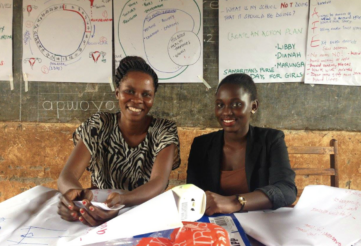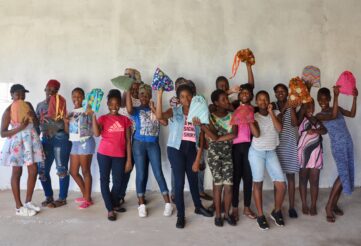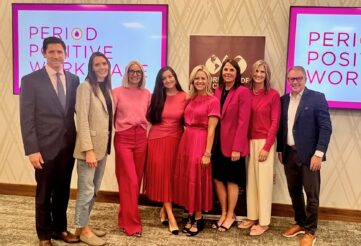March Story Highlight
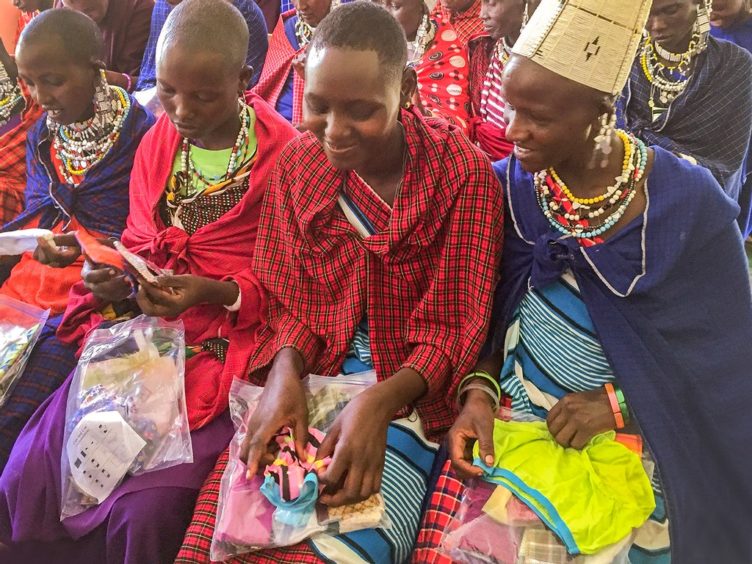
Lynne Marlowe founded a DfG Micro-Enterprise in Endulen, Tanzania back in 2015. Read her story here:
I fell in love with Africa in 2012 when my brother took me on safari in Tanzania. There I became friends with Lemali, a Maasai man who worked at our camp in the Serengeti, and learned more about his culture. I have returned to Tanzania each year since and visited Endulen, a very remote village in the Ngorongoro Conservation Area three times. While there in 2015, we met with a small group of women, and I learned about the difficult time they have managing their menstrual periods without money or resources. They asked if I could help them organize a health project to help with this issue.
Back at home, after hours of research, I discovered Days for Girls and thought the reusable DfG Kits would be a great solution at Endulen. I enrolled in the online Ambassador class and downloaded resource materials that would be helpful at our meeting. Many of the girls and women aren't educated about the menstrual cycle or pregnancy, and the visuals combined with the doctor's presentation were enlightening to many of the participants.
I created the Indigogo fundraiser in 2015 and with the amazing support from friends and family purchased 100 DfG Kits, extra supplies and could provide lunch for the participants at our meeting. Half of the DfG Kits came from a Chapter in northern California and the remaining DfG Kits from Christine’s DfG Micro-Enterprise in Nairobi.
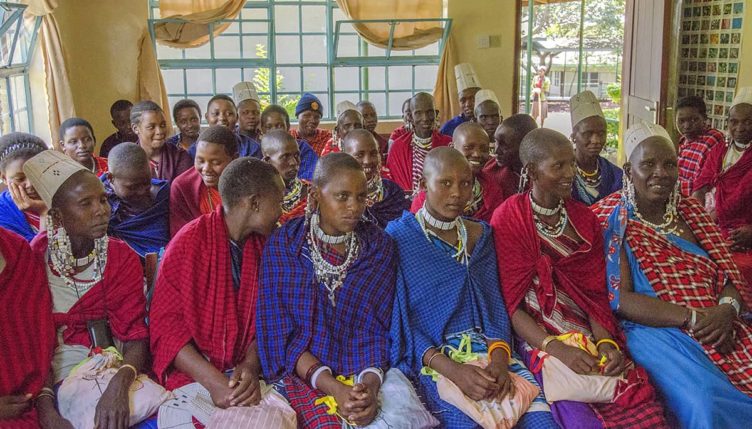
While I organized the project here, Lemali worked at Endulen to get the word out, obtain permission from the village leader to hold a meeting and connect me with the local Maasai doctor, Mameso. She and I texted for several months and her help and support proved essential for the success of our meeting.
Lemali, his cousin Nayeku and I returned to Endulen in February 2016 with a huge suitcase of Days for Girls Kits and supplies for our meeting. About 40 girls and women attended and listened attentively — with a few embarrassed giggles — as Mameso demonstrated how to use the DfG Kits and discussed several health issues using the illustrations. She demonstrated the use of panties — a new idea for some Maasai women — how the pads fit into the shields and then snap into place in the crotch of the panties. We distributed the kits and let the women practice assembling them. They were all smiles and chatter and quickly understood how the kits work.
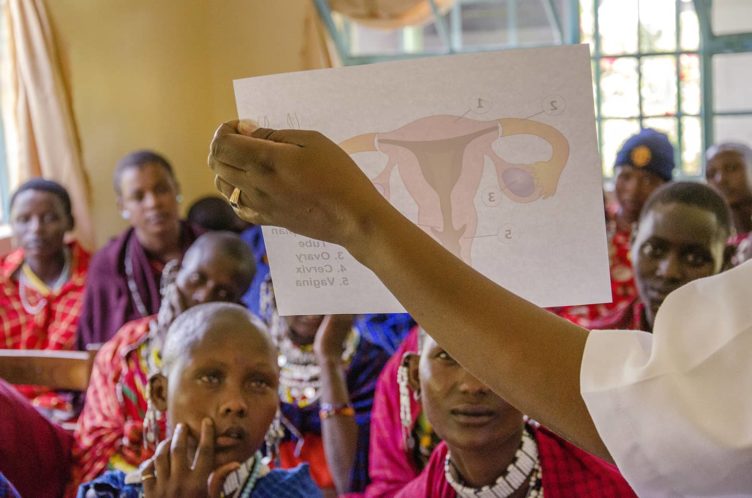
The meeting lasted more than an hour and then it was time for lunch which was eagerly received by the group. We left all but 10 of the remaining DfG Kits with Mameso, and I learned later that she had distributed them within a few weeks and could easily have given out more.
After the meeting, we returned to Lemali’s mother’s house, sitting in the sweltering heat and swatting away the endlessly annoying flies. Upbeat Swahili music was coming from an old radio but, without a fan or a cold drink, it wasn’t much of a distraction.
Then Nayeku said, “We have a customer,” as a woman walked in and asked about the DfG Kits. Nayeku sat with her and demonstrated how to use the DfG Kits and care for them. As she was doing this, a cousin came home from school with two girlfriends, and I gave them DfG Kits also.
One girl finished inspecting her DfG Kit, put the contents in its cloth bag and hung it around her neck as she bounced her shoulders to the music when she jumped up. Then, as if she couldn’t contain herself a moment more, she jumped up, turned up the radio and started to dance.
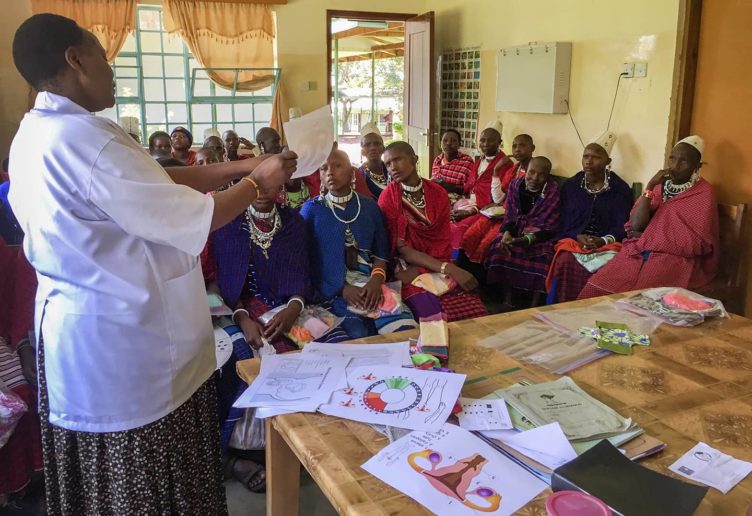
The other school girls joined her and and the two little girls who had been hanging around stood up and started to dance. Soon two mothers and their children from nearby huts came in and were singing along. The scene was magical: school girls in tattered uniforms, barefoot little girls in oversized hand-me-down dresses all dancing, slim bodies moving in the same dance they would do as Maasai women.
The next day, Mameso texted that several girls had come by to see her after hearing about the DfG Kits, and Lemali received calls from girls wanting to know how to get them. He smiled at me and said, “Our project is a success!”
Our goal in 2017 is to provide DfG Kits to the 200 Endulen school girls when I return to Tanzania in May — so they can manage their monthly periods in a healthy, reliable and educated way.” –Lynne Marlowe, lgmarlowe@gmail.com







